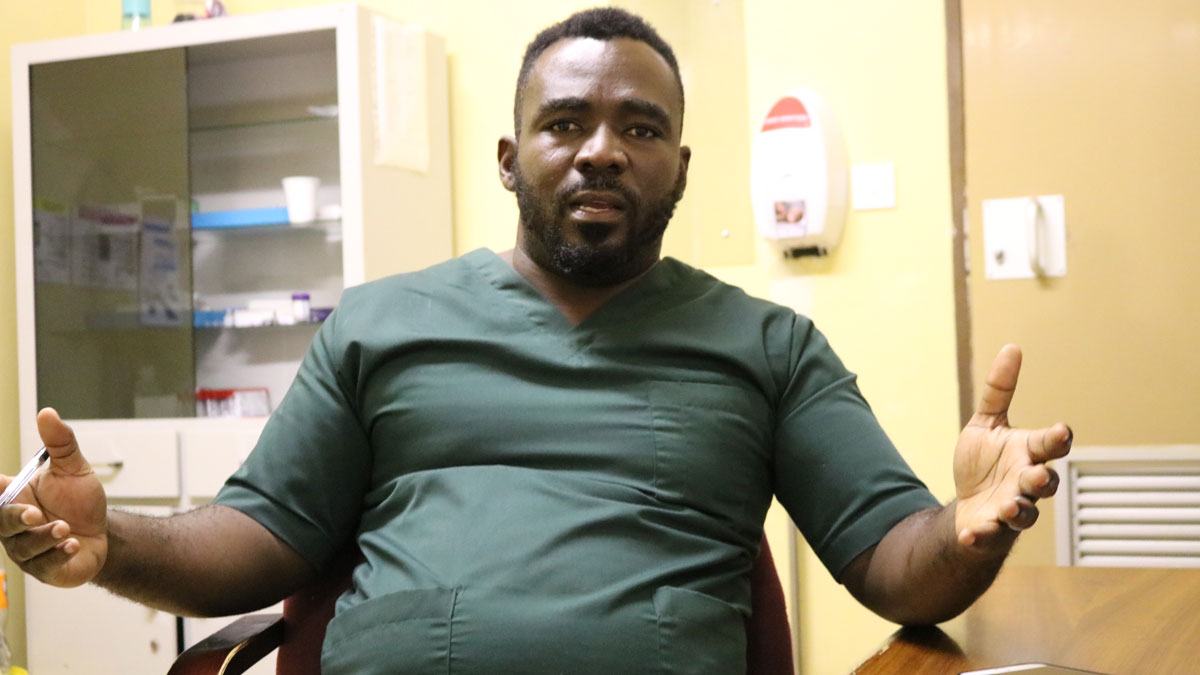Gov’t bill for private facilities exceeds P1.3billion
The Ministry of Health has paid over P1.176 billion to private health facilities for outsourced patients during the 2022-2023 financial year, Th Voice can reveal.
There are other pending payments believed to be in the region of P200million.
“We are currently unable to state with certainty, the exact amount of pending payments as that is still being compiled,” said the ministry spokesperson Dr Christopher Nyanga.

However according to impeccable sources at Princess Marina hospital, the huge bill can be attributed to a number of factors such as conflict of interest and a dysfunctional procurement system.
The inside sources who spoke on condition of anonymity for fear of victimisation expressed concern that the hospital has become a “referring hospital” instead of referral hospital.
“Often, a specialist would refer a patient to their clinic or a friend’s clinic for a surgery that could be performed internally. They even boast that they have a target amount to make at the end of the year. Obviously they get a share when they refer to a friend’s facility,” said one source adding that the ministry is ‘captured.’
The sources further said that some patients are made to wait for months before seeing a specialist, only to be told to go back home and wait longer only to find out that the reason for that was because that particular specialist was engaged elsewhere.
However, in response to our questionnaire, the ministry said it employs just under 80 specialists at Princess Marina Hospital and Nyangabwe hospitals comprising of Batswana, Cubans, Chinese and different nationalities.
“None of these are employed elsewhere and none of them are operating private clinics,” said the response to our enquiries.
In addition the ministry stated that it has access to about 14 specialists of different disciplines from the University of Botswana who get engaged at Princess Marina Hospital every week.
The ministry confirmed the turnaround times for seeing a patient by a specialist ranges from three months for services like general surgery and up to 24 months for ophthalmology- specifically cataract surgeries.
Ophthalmology is the medical specialisation that focuses on the health of the eye.
Dr Nyanga confirmed that the Ministry has outsourced a total of 2847 patients from January to March 2023.
“The common reasons for outsourcing services to private facilities are when the ministry does not have specialists to handle the conditions being outsourced or if it does not have the appropriate medical equipment to diagnose the conditions that patients may be having,” Dr Nyanga explained.
In response to the shortage of specialists the ministry has sent over 200 doctors for specialist training at the University of Botswana and will recruit more specialists to reduce the waiting periods, Dr Nyanga said.
Meanwhile, as at November 31st 2022, the Ministry of Health had paid approximately P167.8 million to Bokamoso Private Hospital, Gaborone Private Hospital was paid approximately P62 million while Sidilega Private Hospital had pocketed approximately P88 million.
In Francistown, Riverside Hospital was paid approximately P54.7million while the Francistown Academic Hospital was paid over P42 million.
At the time, the minister said the figures were reasonable compared to what the government incurs in its own facilities.
Contrary to the ministry’s information, The Voice investigations have established that many surgeries are outsourced to private hospitals because of shortage of basic resources such as suture, linen, pain killers and saline solution among others.
“If for instance you have to do a hysterectomy [womb removal) and there is no suture, you have no option but to refer to a private facility. A suture costs P20 or so, whilst packet of sutures costs around P200, but that surgery costs between P50k and P75k,” said a doctor whose name cannot be revealed for fear of victimisation.
She added that the same applies for patients who deliver through Caesarean Section or C-section who are also referred to private facilities in large numbers mostly because of non-availability of the basic items.
“The government shouldn’t be paying even 10 percent of the bill if everybody were doing their job. It is pathetic,” she said adding that procurement department is as good as dead.
Former Permanent Secretary in the ministry of Health,Dr Kolaatamo Malefho agreed that the bill is too high and caused by unnecessary outsourcing and poor procurement procedures.
“In many instances, when a machine breaks down in Theatre and it costs around P100k to repair, you have to float a tender for month, then the subsequent process will take roughly another month or two. In the meantime you have to refer patients to a private facility. By the time the machine returns, you would have paid that private facility over P3million, almost 100 times the cost of repairing that machine,” he said.
“However, I suspect there are cartels or syndicates operating behind the scenes to benefit from this,” Dr Kolaatamo told The Voice.
While it is impossible to acquire a license for a private clinic for doctors employed in the Ministry of Health, the University of Botswana allows its employees to operate private clinics, The Voice has further established.
“They attend to Marina patients, then they refer them to their own clinics, or clinics of their friends. There is nothing the ministry can do about this arrangement,” said the source.
In addition to Scottish Livingstone Memorial Hospital in Molepolole, Mahalapye Hospital, and Sekgoma Memorial Hospital in Serowe, there are six Theatres at Princess Marina Hospital and all not fully utilised.
The president of Botswana Doctors Union Dr Kefilwe Selema confirmed many of our findings.

“Majority of cases that are outsourced to private hospitals are elective/avoidable, they are non-emergency cases, they are cases that local doctors and local facilities should be doing, but for whatever reason that we do not know, patients are still outsourced everyday,” said Dr Selema.
He added that the public healthcare system needs urgent attention from the authorities before it is too late adding that the bill is too high, unnecessary and unsustainable.
Dr Selema implored all leaders in all government departments to try and reduce these unnecessary expenditures especially that MoH does not generate any income for the government.
“We are failing to collect the P5.00, we are failing to collect any money from foreigners who are coming here en-masse, there is no money that comes in through the ministry of health but it is a high expenditure ministry,” he said.
He said the government should do everything in its power to retain experienced and high quality doctors if the country was to have a world class healthcare sector. Otherwise, he warned, people will continue to die of curable conditions and ailments; few investors will come here; and government will continue losing a lot of money in compensation for victims of wrong diagnosis and surgeries.
He said Botswana doctors are the least paid in the SADC region and the public healthcare system is a turnoff for specialists who want to settle in the country.
He said the government should be prepared to pay medical professionals well if it wants to retain quality service.
There are over 8,500 specialist areas across the world but Botswana has not achieved even one percent of them.
According Dr Selema, diseases or conditions affecting human body organs differ from age to age, but in Botswana a general practitioner and specialist are expected to know everything across all ages, which is wrong.
Meanwhile, when presenting the ministry’s budget for 2023-2024 the assistant minister Lelatisitswe said the process to partner with local private specialists to provide specialised health services within Government Hospitals is at an advanced stage.
“Local private specialists will be engaged through Private Public Partnership model and be deployed to referral and district hospitals. The Programme will start with the top eight areas in high demand such as General surgery, Orthopaedics, Obstetrics and Gynaecology, Urology, Neuro Surgery, Maxillofacial and oral surgery, Anaesthesiology and Ophthalmology. Implementation of this initiative is anticipated to commence at the beginning of the 2023/24 financial year. This development will lead to providing quality health care services promptly as well as reducing referral costs,” he said.
The ministry was allocated approximately P10.7 billion for the 2023-24 financial year and P401million is for development budget.
“Regarding revenue collection, my Ministry’s total revenue collection for the 2022/23 financial year stands at P12.2million, the bulk of the revenue comes from COVID-19 fees and private outpatients’ fees,” the minister said.






